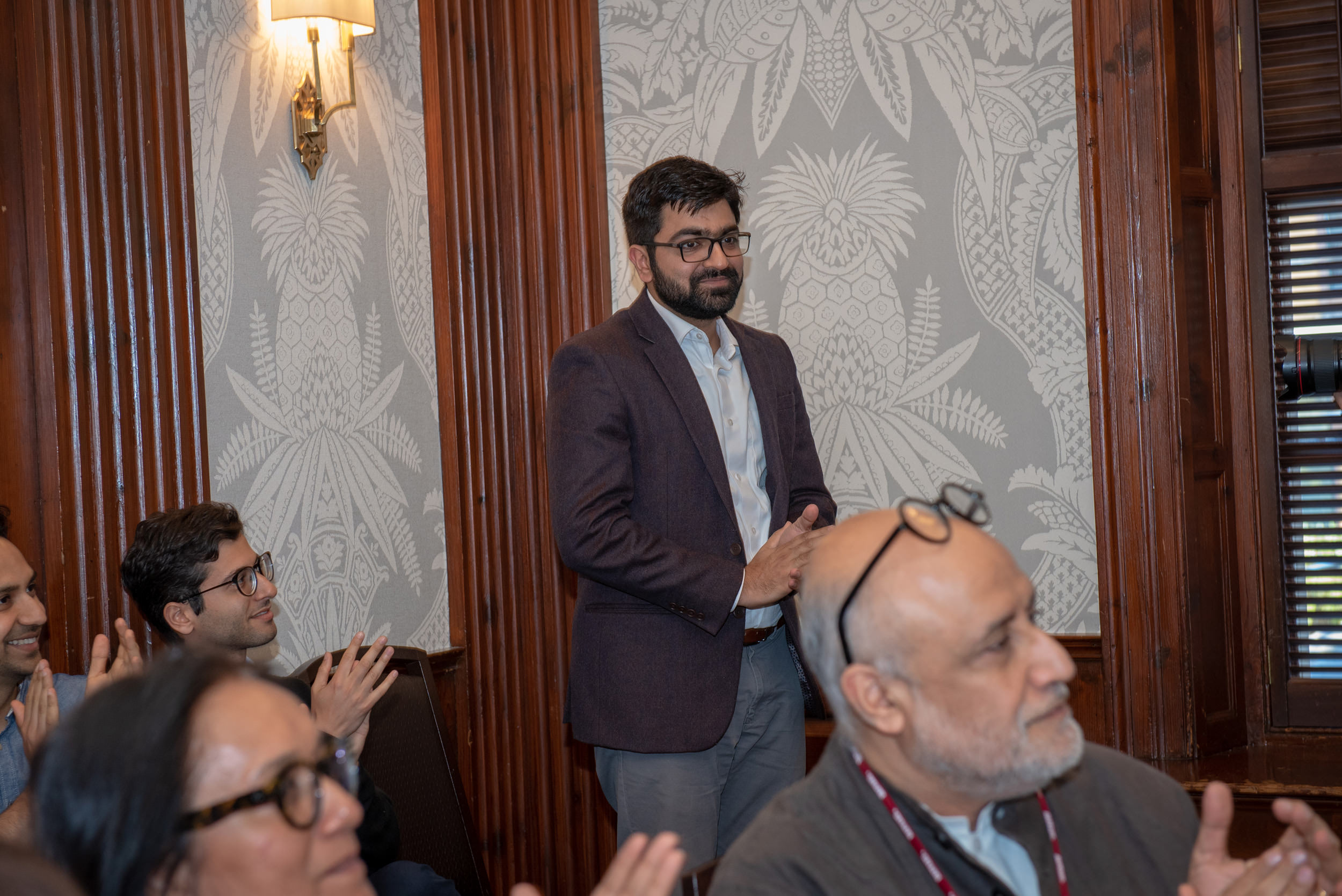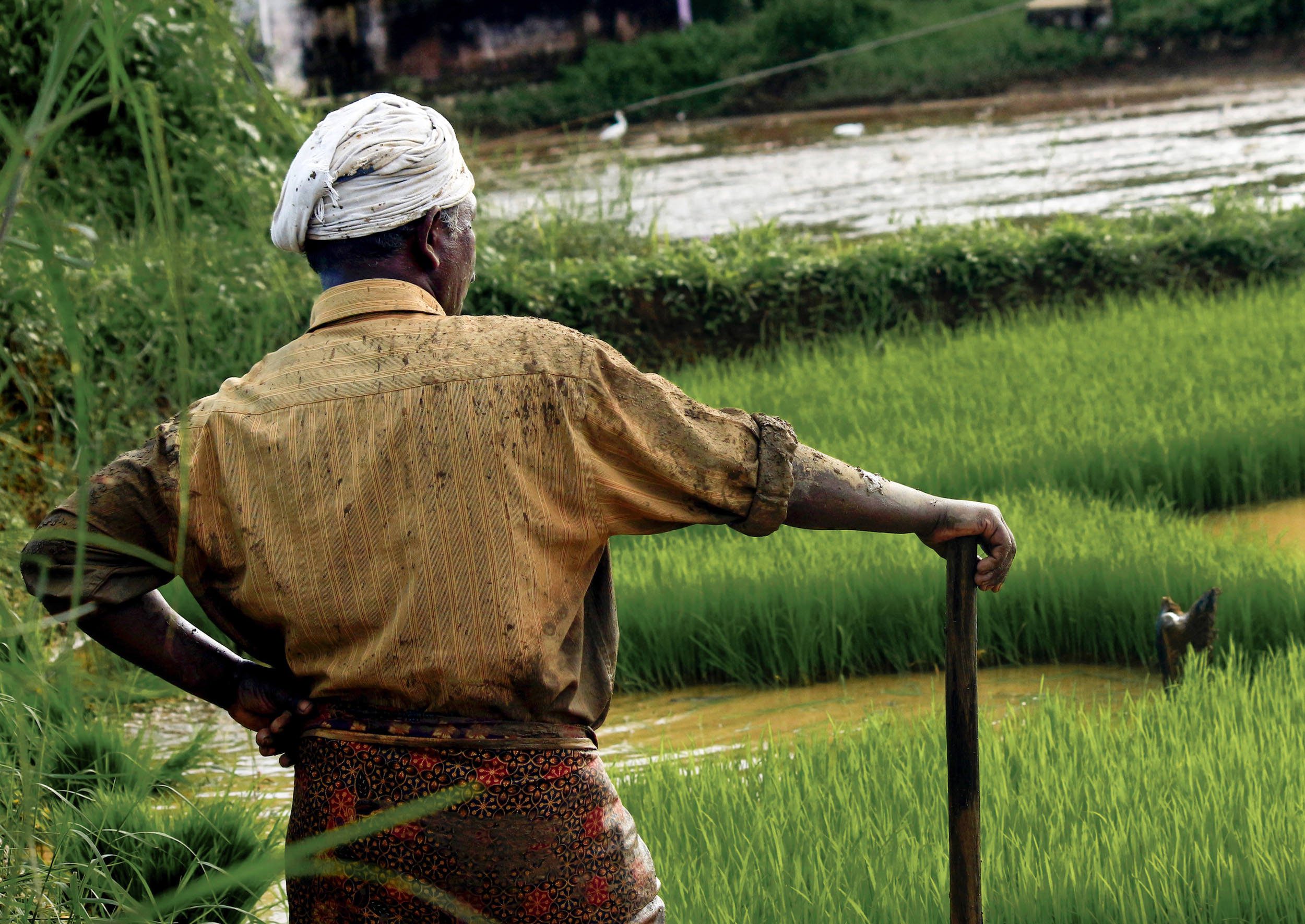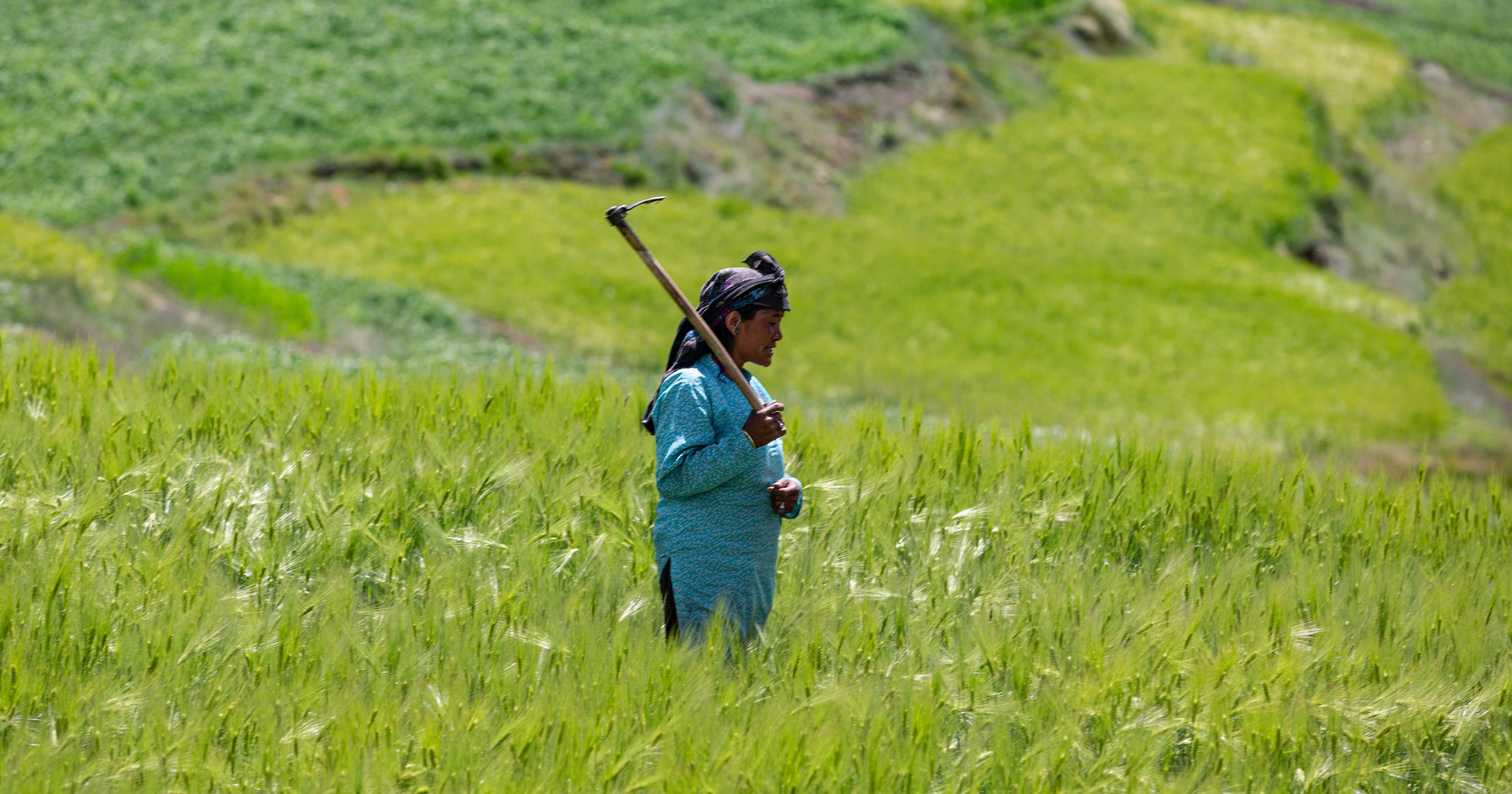
Vikas Birhma at the final round of the Mittal Institute’s Seed for Change competition in April 2019.
Every 30 minutes, a farmer in India commits suicide. That haunting fact is the inspiration behind a new social enterprise and digital platform called Gramhal, which will streamline the work of smallholder farmers in India while increasing their income. Co-founders Vikas Birhma, originally from a village in Northern India, and Pankaj Mahalle, from a small village in Central India, met and became friends at the Tata Institute of Social Sciences in Mumbai. “We both had lived experiences of agrarian hardships and poverty, which became a strong undercurrent of our friendship,” Birhma said.
Together, the two created Gramhal in 2018, which Birhma describes as “an agricultural ecosystem where farming communities have the agency to earn a sustainable livelihood.” For the past year, it has been incubated at the Social Innovation and Change Initiative at the Harvard Kennedy School. Birhma, a recent Master’s graduate in Public Policy from the Harvard Kennedy School, leads the strategy, sales, and fundraising for the enterprise. Mahalle, a Social Work graduate with a gold medal from the Tata Institute of Social Sciences, Mumbai, heads farmers’ interface at Gramhal, encompassing mobilization, relationship-building, and onboarding of farmers onto the platform. They are joined by a team of volunteers from a spectrum of disciplines.
Gramhal recently came in first place in the Mittal Institute’s Seed for Change competition, earning a $40,000 grant to develop their next steps. “In the next year, the funding from Seed for Change will help us build a digital platform and undertake a pilot with 15,000 farmers in Yavatmal, Maharashtra,” Birhma said.
We spoke with Vikas Birhma to learn more about Gramhal. Read his responses below.
What is Gramhal?
Gramhal is a social enterprise that builds smallholder farmers’ agency and increases their income by unlocking post-harvest services of storage, credit, and market linkage via a digital platform. The majority of smallholder farmers in India are involved in sustenance farming of food grains using informal credit. The urgent need for cash during the harvesting season requires these farmers to quickly sell their produce without waiting for a favorable price. The lack of access to storage and the need to repay credit further intensify the situation. Thus, most farmers end up distress selling at a throwaway price. This has pushed farmers into a vicious debt cycle, leading to one farmer suicide every half an hour.

A farmer in India. Photo by Nandhu Kumar.
Gramhal addresses this issue by providing farmers with a bundle of post-harvest services, including access to storage, credit, and buyers via a digital platform. The platform enables farmers to store their produce in our partner warehouse. Our partner bank extends credit to the farmer by taking stored produce as collateral. The credit eases the farmers’ cash flow and provides farmers with the agency to wait for a favorable market condition. Furthermore, receiving daily price information via SMS allows farmers to decide when to sell their produce, and they can easily initiate a sale by sending an SMS to Gramhal. Thus, we build an ecosystem for farmers that empowers them to decide when to sell, whom to sell to, and at what price. Through this model, we aspire to improve the lives of more than 600 million people in India who are directly dependent on agriculture. We envision a world where no farmer has to die to feed the planet.
Our low-tech platform based on SMS communication provides a massive opportunity for reach and scale of digital intervention. In India, 88% of households own mobile phones, however, the literacy level in rural India is only 71%. Hence, one logistical challenge would be to reach non-literate farmers. In the next two years, we hope to solve this by developing an interactive voice response system for non-literate farmers to access our services.
What are the challenges smallholder farmers face in India?
Smallholder farmers in India face many challenges. Among them, there are three most critical issues that have pushed them into a debt spiral and destitution:
- Credit comes at a high interest rate from intermediaries. Formal banks do not extend credit to smallholder farmers, because most of them do not have land ownership. Thus, they are dependent on informal credit from intermediaries, who charge an interest rate between 40% to 120%.
- Low harvest price around the harvesting season.
- Uneven cash flow. Their income is seasonal, however, their expenditure is on daily terms. This decreases their agency to make a strategic decision, like holding the harvest to wait for a better price.

A farmer in Komic, India. Photo by Marc Hastenteufel.
What do you foresee as the social impact of Gramhal in India?
Gramhal’s business model is rooted in a strong social impact.
- The short run: Gramhal will increase the farmers’ income. The option of storing harvest at the warehouse and the access to credit will provide farmers with an opportunity to harness seasonal price increase. Furthermore, a direct link with the end-buyer will shift price gains from intermediaries to farmers. Price gains along these two-dimensions will increase the income of the farmers by more than 40%.
- The medium run: Gramhal will build the farmers’ agency. The access to post-harvest credit will build farmers’ agency to avoid distress selling. Also, our platform will automatically gather the most authentic farm-level data on quality, quantity, yield, price, debt, and income. This data will be used to provide personalized extension services to farmers.
- The long run: Gramhal will stimulate rural job opportunities. India has a gap of 27 million metric tons in agriculture warehousing. Our platform will generate the demand to fill this gap. Rural entrepreneurs and farmers’ cooperatives will emerge to open small-scale warehouses at the village level. This will create a demand for semi-skilled workforce in rural areas, creating millions of rural jobs.
What does the future look like for Gramhal?
In the next three years, Gramhal will scale in five districts adjacent to Yavatmal. Gramhal has close relationships with farmers’ cooperatives and grassroots organizations in our project location. As we scale, we will partner with these institutions to onboard farmers onto the platform and deliver critical services of quality inspection, grading, and transport pooling at the village level itself.
This interview has been edited for length.
